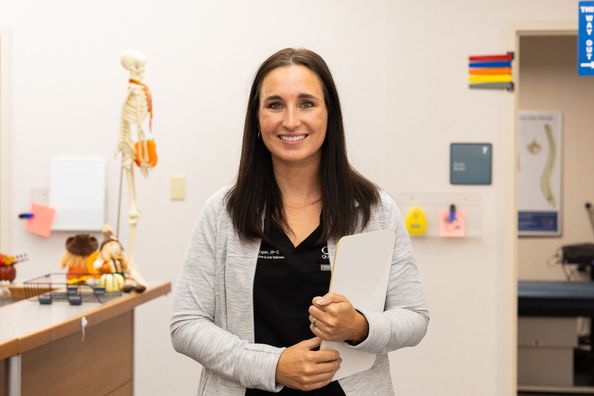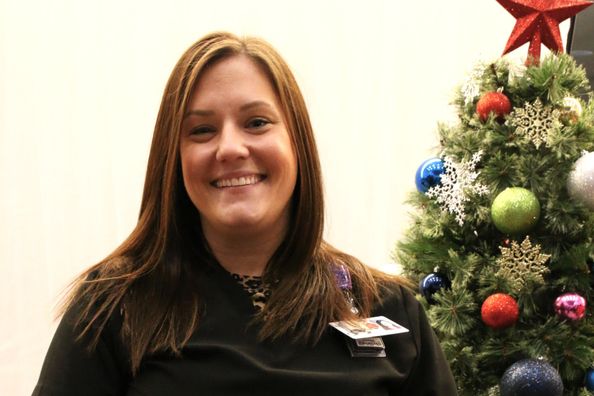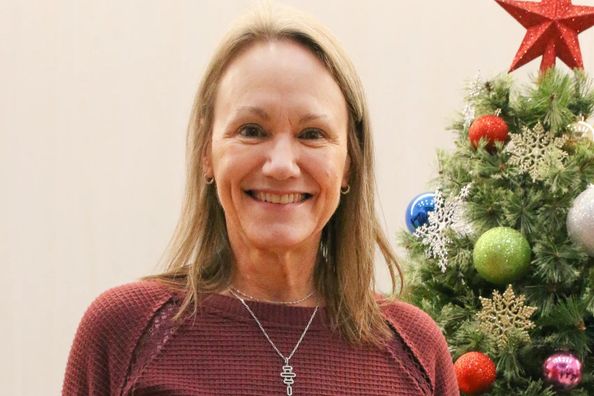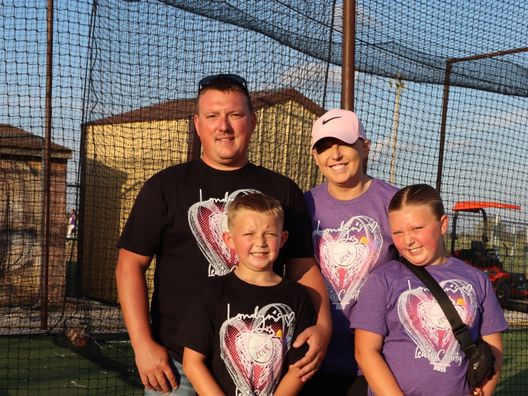National APP Week: Jordan Hogan
Meet Jordan Hogan, MSN, APRN, FNP‑C, a dedicated nurse practitioner at QMG’s Interventional Spine and Joint Wellness department. With a passion for helping patients and a deep understanding of musculoskeletal health, Jordan has been providing compassionate care since joining our team in 2013. In this Q&A, she shares her insights on what inspired her career path, the rewards of her role, and the advice she offers to aspiring nurse practitioners.
What inspired you to become a nurse practitioner?
Becoming a Nurse Practitioner (NP) was inspired by my passion for helping others and my desire to make a tangible impact on patients’ lives. From early on, I was drawn to the medical field, fascinated by the blend of science, compassion, and human connection that healthcare embodies. As I gained experience, I realized that being an NP would allow me to combine my clinical skills with the ability to build meaningful, long-term relationships with my patients. The autonomy to diagnose, treat, and educate patients, along with the opportunity to advocate for their well-being, truly resonated with me. I wanted to be on the front lines of providing holistic care, and becoming an NP has allowed me to fulfill that calling, offering the chance to make a difference in my community every day.
What do you find most rewarding about your role as a nurse practitioner?
What I find most rewarding about my role as a Nurse Practitioner is the opportunity to make a meaningful difference in my patients’ lives every day. I love being able to provide not just medical care, but also support, education, and reassurance to patients and their families. Building lasting relationships and being a trusted part of someone’s healthcare journey is incredibly fulfilling. I value the ability to listen to my patients’ stories, understand their unique needs, and collaborate with them on a personalized plan for their health. Knowing that I can play a key role in improving someone’s quality of life, whether through preventive care, chronic disease management, or simply being there in a moment of need, is what drives me and makes my work as an NP so rewarding.
What is your specialty area, and what drew you to it?
My specialty area is spine and joint pain management, which combines my interests in helping patients improve their quality of life and my fascination with the complexities of musculoskeletal health. I was drawn to this specialty because of the profound impact that effective pain management can have on a person’s daily life. Chronic pain, especially related to the spine and joints, can be incredibly debilitating, affecting not just physical well-being but also emotional and mental health.
What attracted me most to this field was the opportunity to work closely with patients to develop individualized treatment plans that address their specific needs and goals. I love the challenge of diagnosing complex pain conditions and exploring a range of treatment options, from minimally invasive procedures to lifestyle modifications and rehabilitative strategies. The ability to help patients regain mobility, reduce pain, and return to their favorite activities is incredibly rewarding. It’s fulfilling to see patients progress and achieve relief and knowing that I can play a key role in improving their overall quality of life is what keeps me passionate about spine and joint pain management.
What advice would you give to someone considering a career as a nurse practitioner?
For anyone considering a career in spine and joint pain management as a Nurse Practitioner, my advice is to cultivate a strong foundation in both clinical skills and compassionate patient care. This specialty requires a blend of medical expertise, problem-solving abilities, and a deep commitment to patient-centered care. It’s also important to develop excellent communication skills, as much of this role involves educating patients, managing expectations, and building trust. Empathy and patience are key, as you’ll often work with individuals who are dealing with chronic pain and the frustrations that come with it.
Lastly, stay curious and committed to lifelong learning. Advances in pain management are constantly evolving, and keeping up with the latest research and treatment modalities will ensure that you provide the best possible care for your patients. This field is incredibly rewarding, and the ability to make a positive impact on your patients’ lives makes all the hard work worthwhile.
Health Topics:







